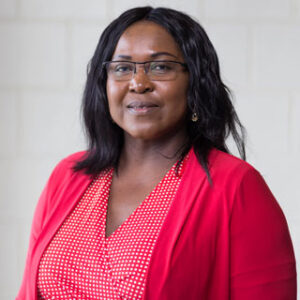(Addis Ababa, Ethiopia) The government of Ethiopia has lauded AATF for implementing projects that have impacted the agricultural landscape, with a lot of potential to address unique agricultural production challenges that the country faces.
‘‘The Ministry of Innovation and Technology appreciates the collaboration between the Ethiopian Institute of Agricultural Research (EIAR) and AATF. I am pleased to see that we have an African organization, that is practically working hard to respond to agricultural challenges through technology and ultimately creating prosperity for our farmers,’’ said Dr. Belete Molla, Cabinet Minister, Ministry of Innovation and Technology, Federal Democratic Republic of Ethiopia.
‘‘We are aware of some notions against agricultural technologies in Africa, which I believe should not get space in the region. Africa should aggressively invest in Science, Technology and Innovation (STI); we should not shoulder poverty in this century,’’ Dr Molla added.
EIAR and AATF started partnership in March 2014 when the Open Forum on Agricultural Biotechnology (OFAB) was launched in Ethiopia as a powerful project in raising public awareness while linking professionals and policymakers across the country and beyond.
Dr Molla noted that ‘‘collaboration with AATF has been practical and impactful and the two organizations established another project – Water Efficient Maize for Africa (WEMA) now TELA- which has significant importance in the production of climate resilient and pest resistant maize in Africa thus addressing our common goal of creating prosperity through technology.’’
Through OFAB, AATF is working to improve the biosafety regulations of biotech products and processes. There have been tremendous human resource and physical capacity building through collaboration.
Dr. Feto Esimo the Director General of EIAR noted that ‘‘there is no nation that has developed without technologies and EIAR is highly committed to embrace agricultural technologies that would benefit our nation with no compromise on the biosafety regulations and EIAR affirms its highest commitment to strengthening collaboration with AATF.’’
According to Dr Dejene Girma, Director, Agri-Biotech Research, at EIAR although agricultural biotechnology tools are part of the solution, controversies, conspiracy theories, misinformation, and unawareness continues to block their potential.
Girma, commended the work of OFAB Ethiopia which comes in to fill in the gaps with many workshops and symposiums on agricultural biotech and biosafety conducted since the launch of the platform which shares credible information with the wider public. He added that many policies have been formulated with the inputs from the platform and building the capacity of staff working on GM crops.
He noted that ‘‘investing our time in the younger generation has some remarkable dividends and currently the Government of Ethiopia is supporting biotechnology programmes in 13 Government Universities.”
“This helps students to gain science literacy, research skills, an understanding of available careers in biotechnology, and the role of biotechnology in society. Besides, the engagements help students see meaning in biotechnology, Girma added.
‘‘I appreciate the collective efforts made over the years to train researchers, regulators, and journalists on various aspects of agricultural biotechnology and associated biosafety issues through OFAB,’ Girma said.
According to Dr Mandefro Nigussie, Chief Executive Officer at Agricultural Transformation Agency of Ethiopia and OFAB 2022 Ethiopia champion, AATF builds the capacity of local institutions which is much needed-with its highly trained, hardworking, disciplined, and networked staff, the foundation is poised to reach its potential highlighted in the new strategic plan.
Through the OFAB Ethiopia Chapter, the country has been successful in changing the mindsets of policymakers, researchers, and the farming community about agricultural biotechnology. And getting biotech research results to various agricultural directorates, Dr Mandefro added.
‘‘Now is the time to promote research products to end users. By doing so, you would have contributed to the Ethiopian economy since science has no boundaries” he added.
OFAB Ethiopia is an innovative platform that fosters dialogue and knowledge sharing about agricultural biotechnology. It brings together scientists, policymakers, farmers, and other stakeholders to discuss and disseminate information on potential benefits and risks of biotechnology in agriculture.
By promoting evidence-based decision-making, the project aims to increase the adoption of biotechnological solutions and improve agricultural productivity in Ethiopia.



































































